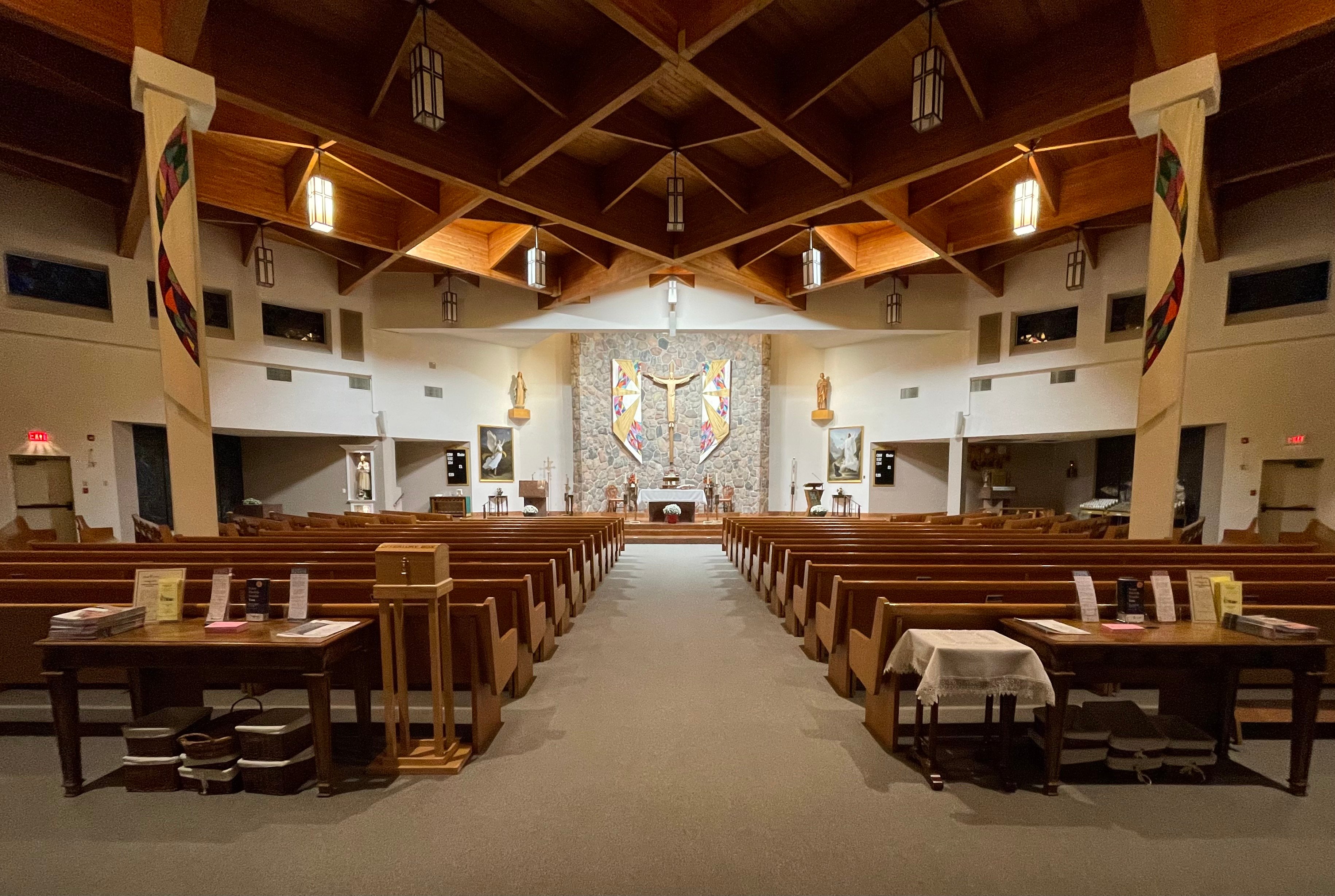- Accueil
- Notre communauté
- Notre foi
- Nos ministères
- Vie paroissiale
- Bulletin
- Nous contacter
- Recherche

Give up Guilt for Lent
Fr. Frank McDevitt is the pastor Our Lady of Grace Parish in Aurora, Ont.
This Wednesday is Ash Wednesday. What are you planning to give up for Lent?
We can find Lenten penances that have little to do with who we are. Of course, penance and fasting is, in fact, not only about who we are, but also about who we want to become.
I have a modest proposal: This Lent, why not give up guilt?
There is this temptation to look back and to hold onto old imperfections or indeed poor choices we made 30 years ago. We are still accountable for old sinful behaviour, especially if it has had a profound effect on other people. If we have made amends and compensated for any harm we may have caused, then it is time to move on.
There is a tendency among many to also take the definitions of our youth and hold onto them throughout life. Why is this? Perhaps we think that life in Christ is unattainable. We develop a belief that we are not worthy.
In Christ all are worthy.
Guilt can be a good thing if it leads to remorse and that remorse calls us to reconciliation with others or with God. Guilt that we hold onto for years – that functions as the backdrop of life – is in desperate need of Jesus and His healing power.
Far too many people look into their heart and then go through life yelling, “unclean, unclean.”
I am not just talking about the intimate part of life with its singular power, its confusing messages in adolescence and its central place in popular culture. It is important to remember many of those struggles are dealt with by maturity.
We can also wrestle with attitudes and various sins of commission or omission that have touched our lives many years before that we somehow cannot put behind us.
Our readings today are about leprosy. The leprous person was to be shunned; he or she lived in profound isolation. Defining ourselves by past failings is a work of profound isolation.
Just like the leprous man who goes to Jesus, we go to Jesus.
And, if you wish, you can say: Jesus, you can make me clean. Jesus who is moved with pity will make us clean.
Let us not be hoarders who never throw away any of the failings we have been guilty of. Spiritual pack rats who hold on to the past with all its imperfection.
If you ever contemplate your loved ones who no longer show any great commitment to church, they will often explain themselves by telling you about the Church’s imperfections. If the truth were known, a lot of this is projection. It is not the Church’s imperfections they are preoccupied with, it is their own sense of imperfection or incompleteness. Their life may seem futile when measured against what they believe the Church’s expectations are. Therefore, they say: I am not religious, but I am very spiritual.
The hunger for something that is deeper and eternal.
We need to leave space for Christ to come in. The purpose of religion is to make that happen.
We each need to know the mercy of Christ and, more importantly, celebrate the mercy of Christ.
We cannot go back and undo what we did wrong. We acknowledge it, make recompense if possible for the harm we may have caused and then we move forward, fuelled by the desire to do good.
This is the work of prayer and reflection.
And for us who are Catholic, the immediate remedy is confession. There are deeply committed Catholics who have somehow ended up in a Church with six sacraments. They have shunted confession to the side, no longer use it themselves and maybe even suggest that others do not need it.
There are many folks who avoid the Sacrament of Reconciliation and say that I have spoken to the Lord.
By all means, go to the Lord and tell Him you are sorry for the times you have failed and then come to the Sacrament of Reconciliation and celebrate the forgiveness that is ours in Christ. Catholics have the hardest time remembering that forgiveness was won at Calvary; we only need to claim it.
In other words, we need to celebrate the gift of forgiveness and salvation.
As surely as Christ healed the leprous man in today’s readings, He has healing for us in the Sacrament of Reconciliation.
So Lent is upon us. Maybe it is time to quit hoarding the failings of the past and embrace the chance to get our living space clean as a sign of reconciliation in Christ.
Let us give up useless guilt, apply ourselves to that which can be addressed and as the great promise of Easter draws near, leave the tomb of shame and live our new life in Christ.
This reflection is based on the readings for the Sixth Week of Ordinary Time, Year B: Leviticus 13.1-2, 45-46; 1 Corinthians 10.31 – 11.1; and Mark 1.40-45.
